6 Best Flowering Plants For Privacy – Grow A Beautiful Backyard Oasis
Create secluded, peaceful garden areas by screening with flowering plants that offer privacy in addition to colorful, fragrant blooms.

Amy Draiss
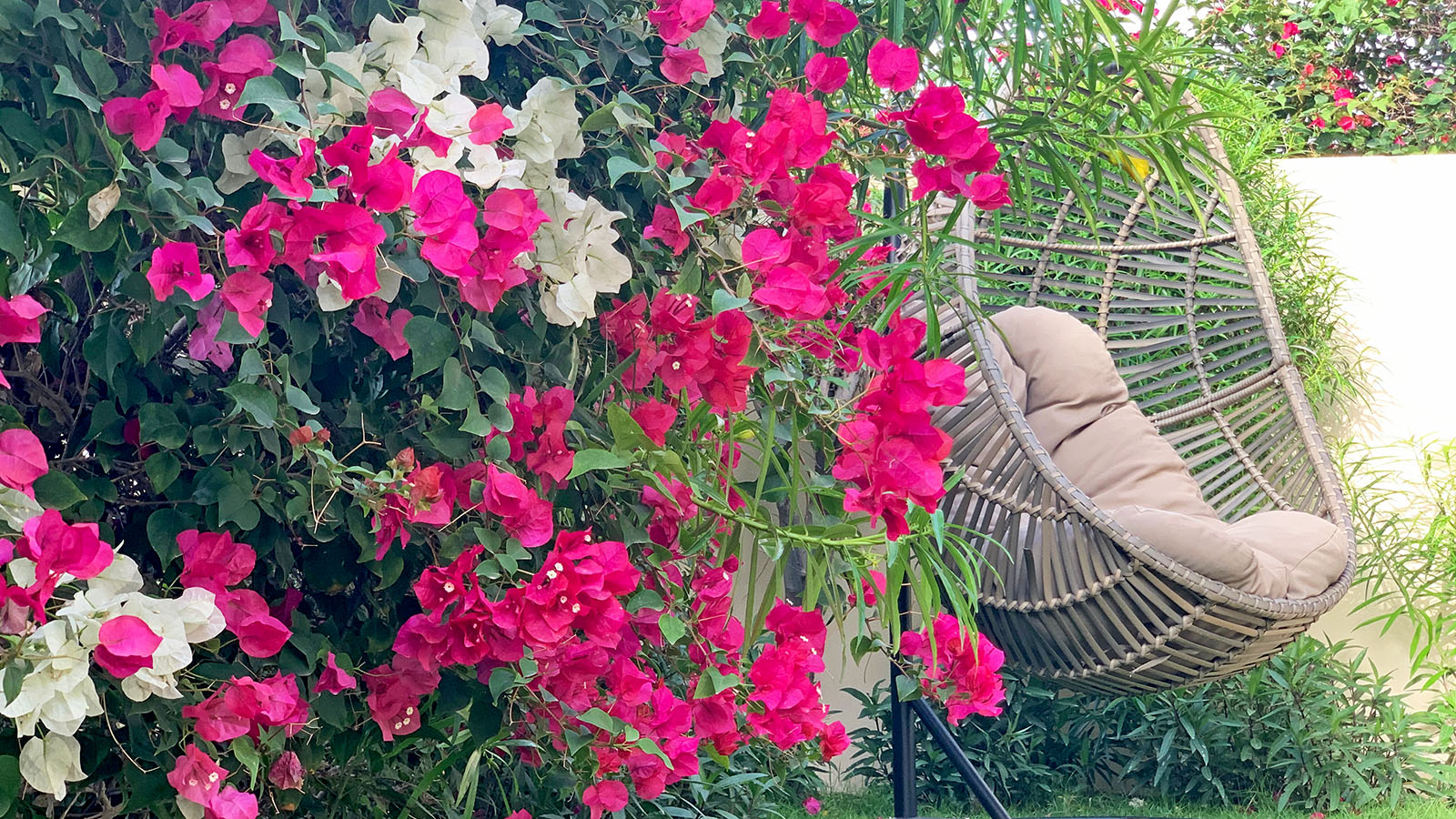
Sign up for the Gardening Know How newsletter today and receive a free copy of our e-book "How to Grow Delicious Tomatoes".
You are now subscribed
Your newsletter sign-up was successful
A secluded area in your backyard can become your own private oasis for relaxing. You can create this area if you have enough space and the right plants for privacy. While structures can provide cover, using plants to separate and screen your oasis is ideal.
You can find many dense hedges to create living walls and privacy screens, but they can be a little boring. Use flowering plants that can be grown densely to create an attractive and fragrant hedge.
Opt for flowering shrubs or vines, but be sure whatever plants you choose are suited to your environment and purpose. Check your USDA hardiness zone and soil type are compatible.
When choosing privacy plants, consider how fast you need them to grow. Fast-growing shrubs for privacy are ideal if you are in a hurry.
Also decide if you need year-round coverage, or just in the warmer months. Most flowering privacy shrubs are deciduous, so choose evergreen shrubs for privacy for coverage in winter.
These flowering shrubs and vines make excellent privacy screens and provide a pretty, fragrant backdrop to a secluded garden oasis.
1. Cherry Laurel
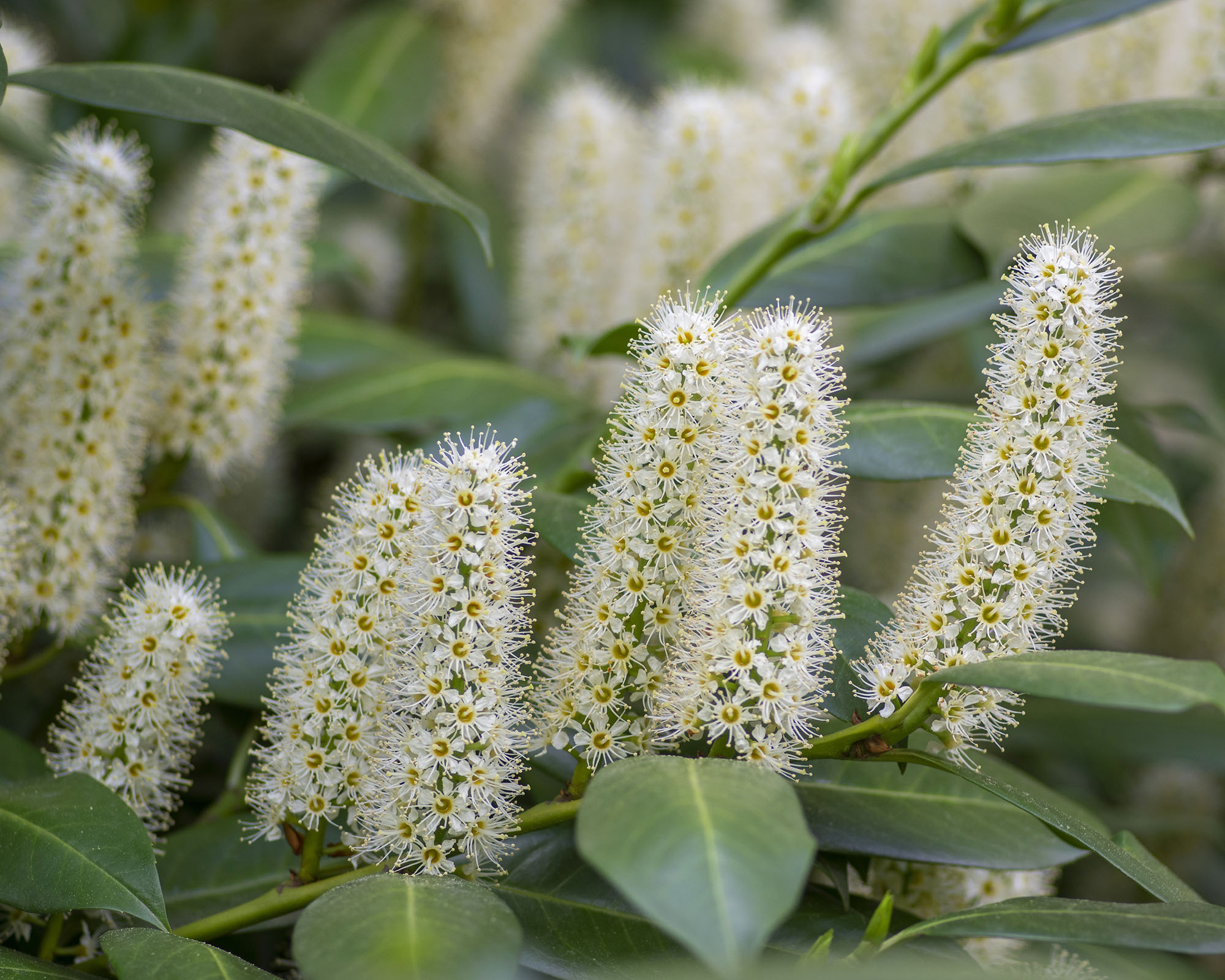
Cherry laurel (Prunus laurocerasus), or English laurel, is native to southern Europe and southwestern Asia. It is a dense evergreen shrub that provides good year-round screening in USDA zones 6 through 8, growing as tall as 18 feet (5.4m)
Sign up for the Gardening Know How newsletter today and receive a free copy of our e-book "How to Grow Delicious Tomatoes".
The frothy white flowers grow on upright clusters and bloom in April and May. They have a strong, pleasant aroma reminiscent of almonds.
In cooler areas of laurel’s hardiness range, the plants will need full sun. Those grown in hotter areas appreciate some shade. Provide rich, moist, but well-drained soil and prune laurel after flowering.
2. Camellia
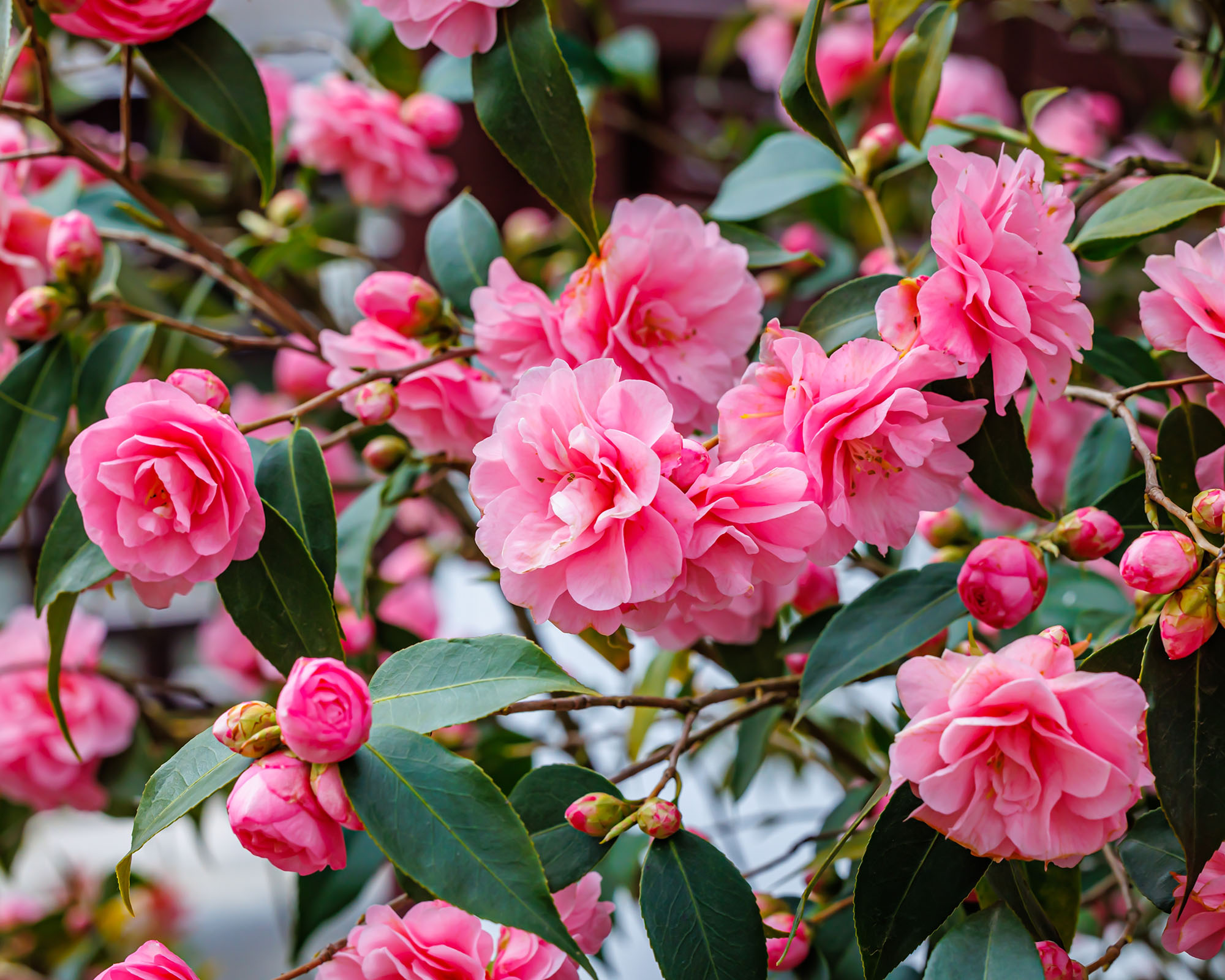
Another evergreen shrub that provides year-round coverage for private garden spots is camellia (Camellia japonica), which grows up to 12 feet (3.7m) tall
While the glossy, dark green leaves are pretty, camellia's flowers are its most striking feature. The beautiful, large, round blooms are usually red, pink, or white. They burst forth in winter in warmer areas and spring in the colder part of the plant's range.
You can grow camellia outdoors in zones 7 through 9. Shrubs need moist, acidic soil that drains well and they prefer partial shade. To enjoy larger flowers, remove all but one bud from each cluster as they appear.
3. Oakleaf Hydrangea
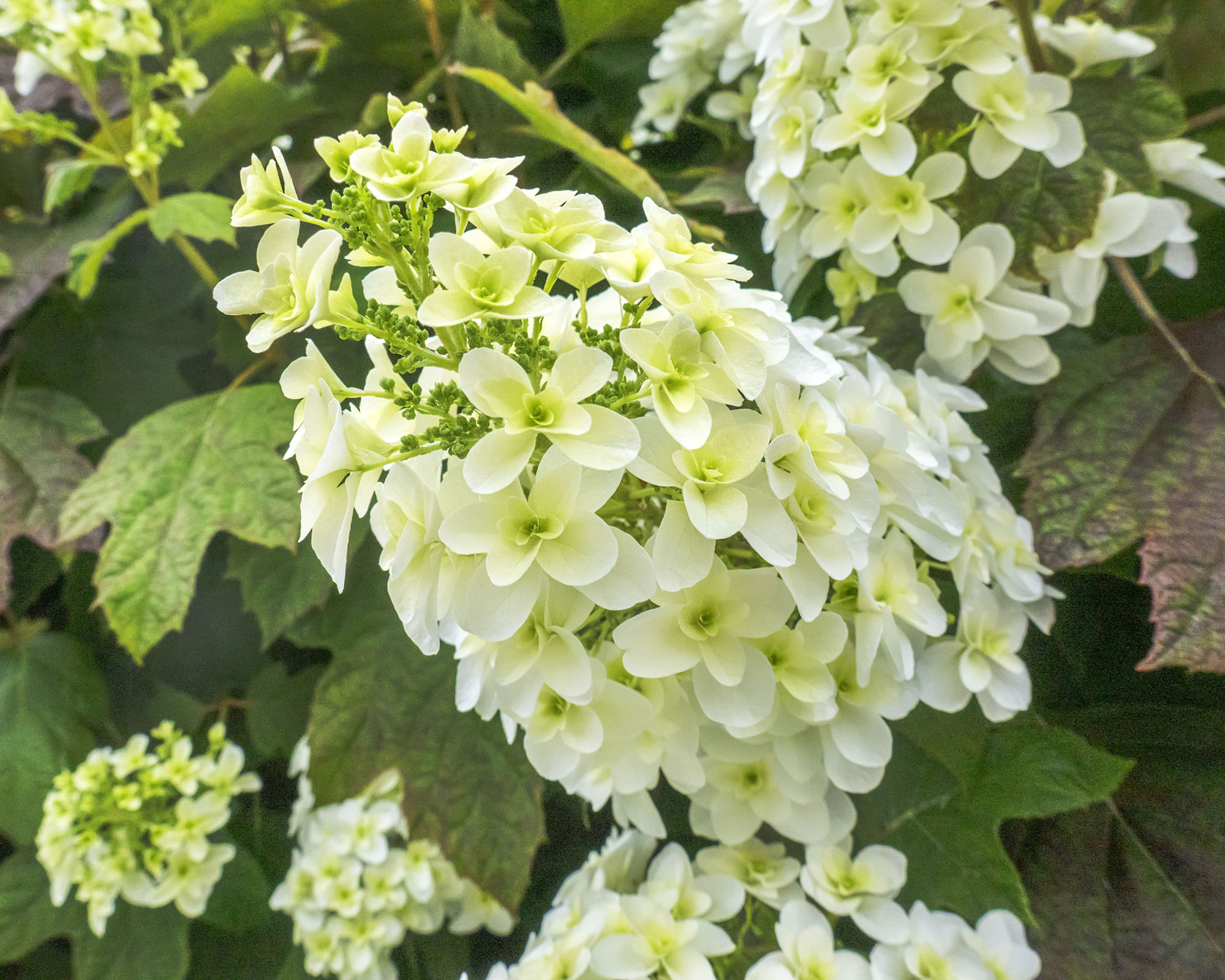
The large, shrubby oakleaf hydrangea (Hydrangea quercifolia) is deciduous but provides excellent privacy from spring through fall. It grows to six feet (1.8m) wide and eight feet (2.4m) tall.
The white flowers grow on large, pyramid-shaped panicles that put on a good show from late spring through mid to late summer. Although it is deciduous, oakleaf hydrangea provides visual interest in winter if you let the flower panicles dry and stay in place until spring.
Native to the southeastern US, oakleaf hydrangea grows reliably in zones 5 through 9. It needs rich, well-drained soil in full sun to partial shade.
This is a low-maintenance shrub that needs little pruning. Grown as a hedge, it makes an informal but attractive privacy screen.
4. Bougainvillea
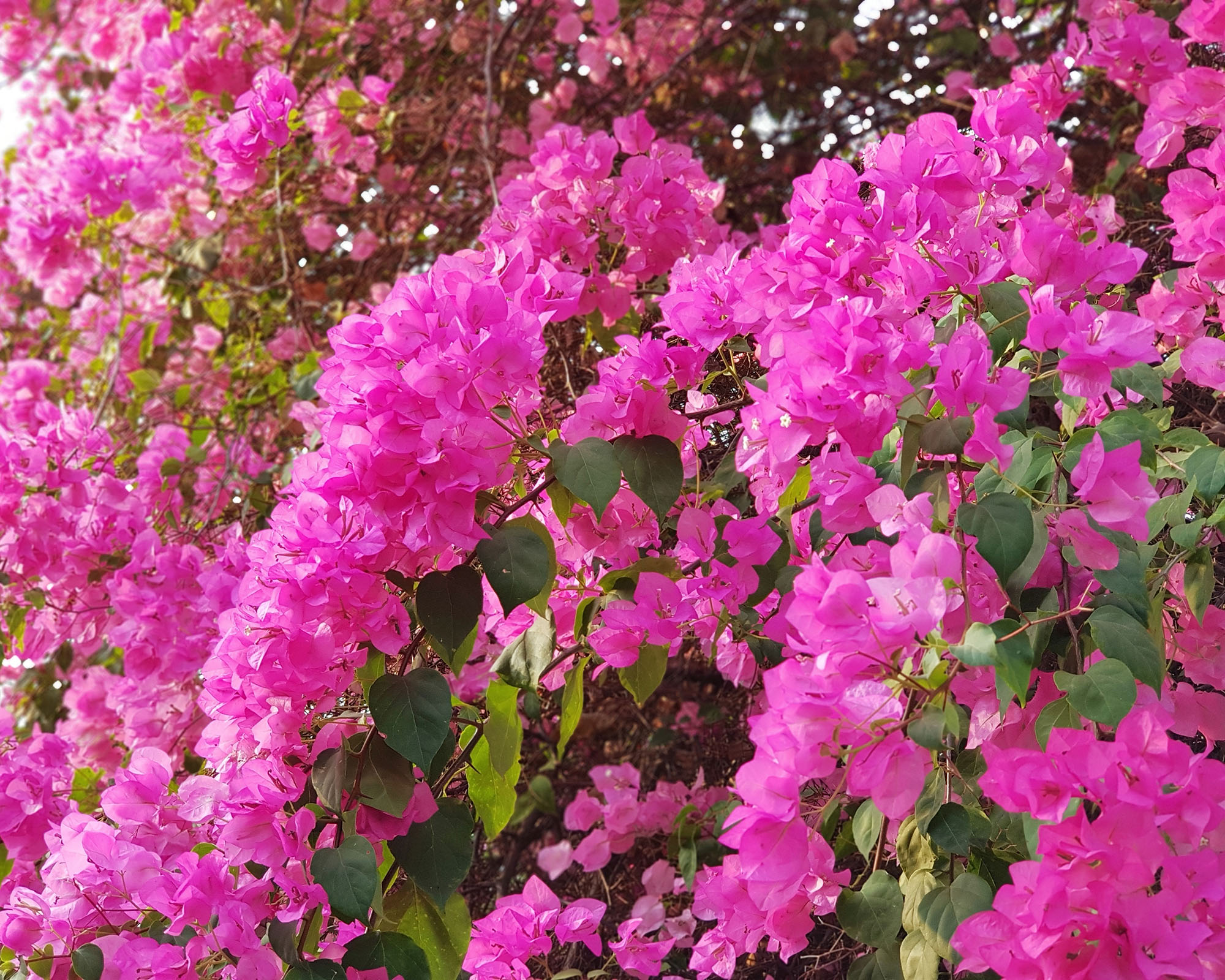
A warm-climate vine, bougainvillea (Bougainvillea spp.) is among the showiest of flowering privacy screens. It is hardy in USDA zones 9 through 11.
If you do not provide a climbing frame, bougainvillea grows low to the ground like a shrubby ground cover. But, when you train it to a trellis or other structure, it makes a very showy screen of dense flowers – which are actually bracts – that bloom throughout the year. It can potentially grow up to 15 feet (4.6m) wide and 40 feet (12m) tall or long.
Provide bougainvillea with well-drained, acidic soil in a spot with full sun or light shade. It tolerates dry conditions. Prune the vine regularly to maintain its size and control its direction of growth.
If you don’t have a permanent structure for a vine, bougainvillea will grow well in containers. Use several containers in a row with trellises attached to them to create a privacy screen.
5. Hardy Hibiscus
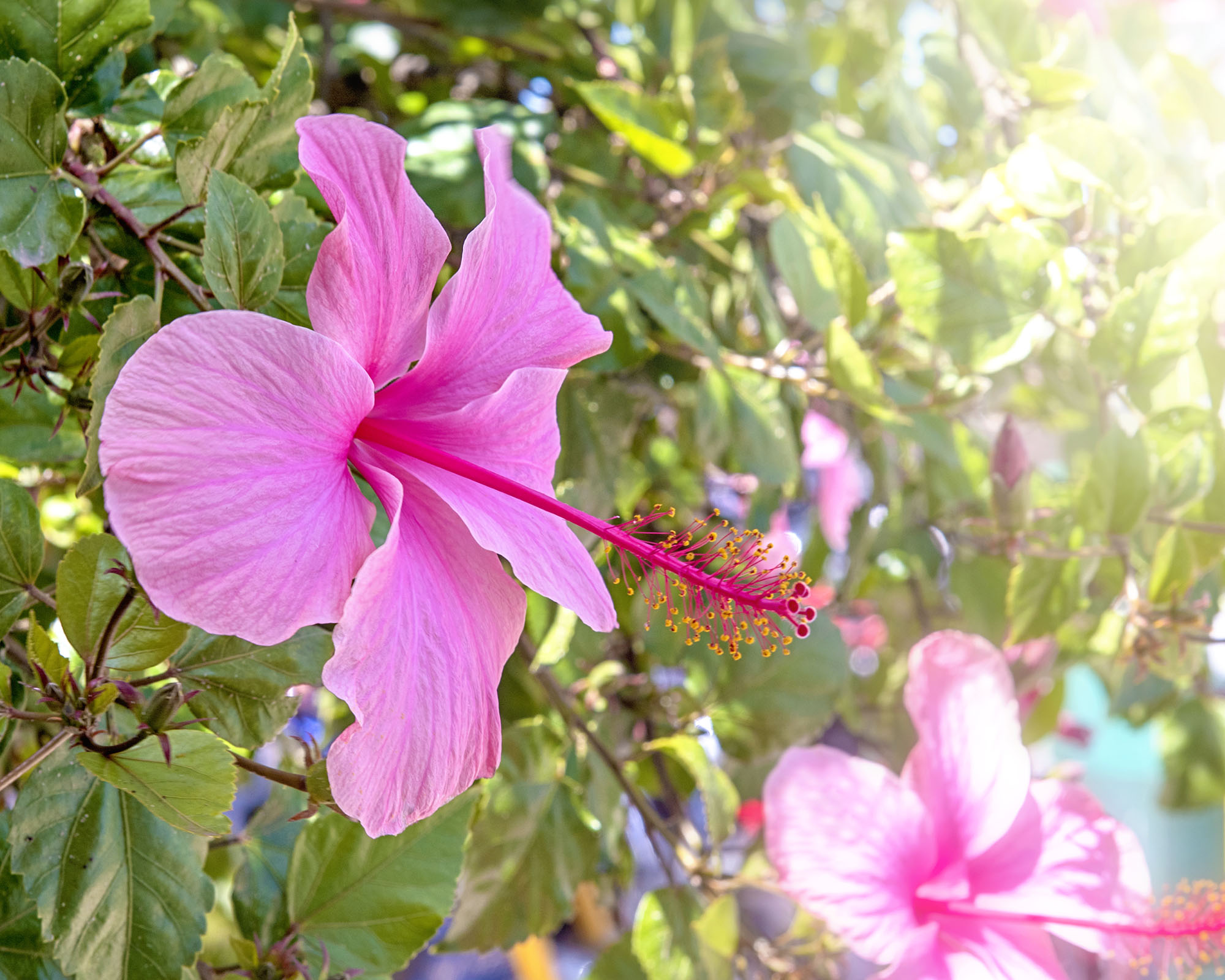
Also known as swamp mallow, hardy hibiscus (Hibiscus moscheutos) is a North American native shrub that tolerates cold winters (zones 5 through 9). Hardy hibiscus pairs well with spring-blooming plants because it flowers in mid-summer and into fall.
Blooms have a tropical feel and while each flower only lasts one or two days, the plant continuously produces large, colorful flowers over a long period.
Hardy hibiscus grows up to four feet (1.2m) wide and seven feet (2.1m) tall.
As one of its common names suggests, this hibiscus tolerates wet soil. It’s an ideal plant for screening a low area that sometimes retains water. Full sun is best.
You do not need to prune hardy hibiscus much, but if you want denser growth, pinch back growing tips at 8 and 12 inches (20 and 30cm).
6. Lilac
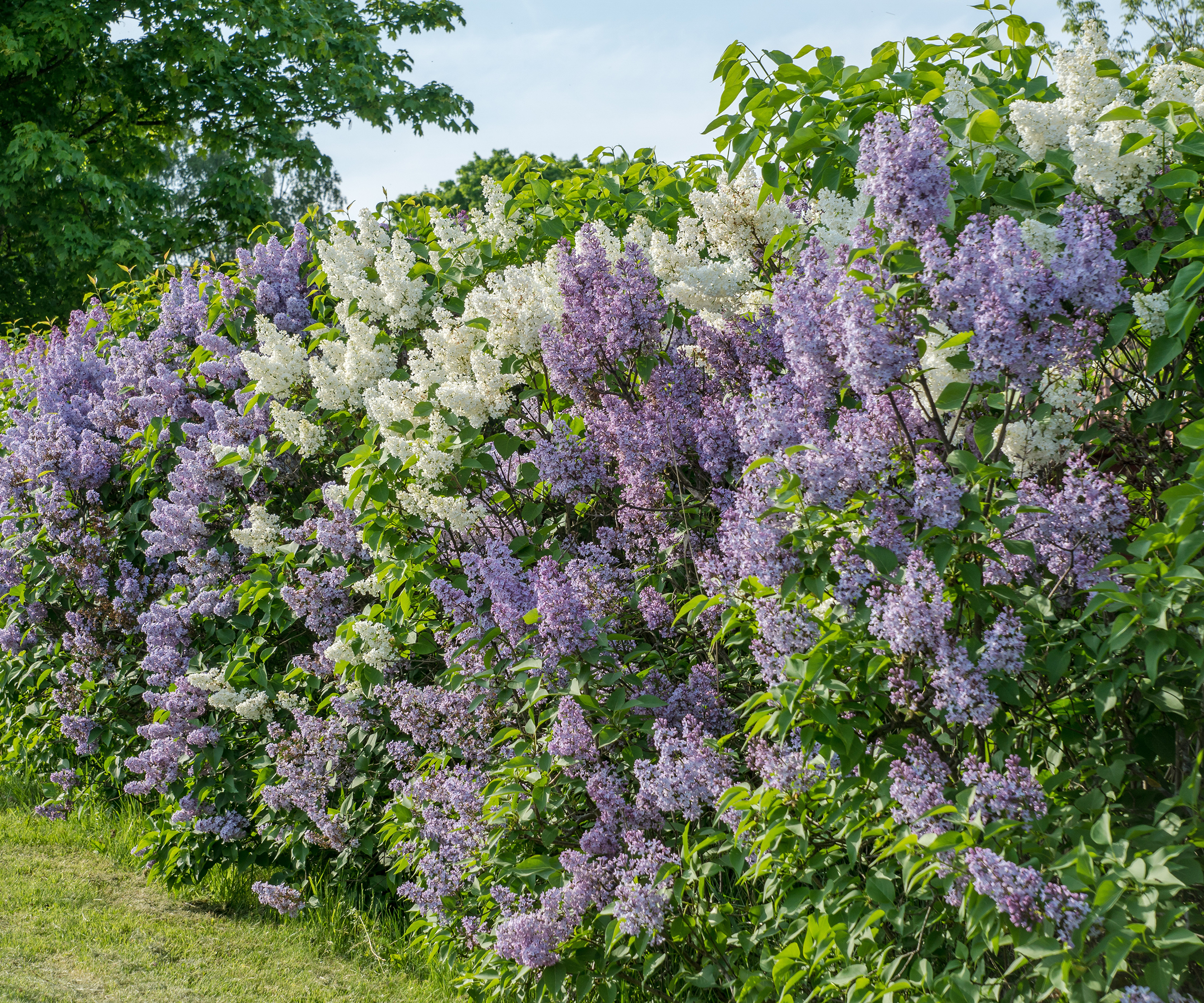
One of the most sweet-smelling of all flowering shrubs, common lilac (Syringa vulgaris) produces its showy panicles of flowers in spring.
You can grow lilacs in USDA zones 3 through 7, where they can get up to 16 feet (5m) tall.
Lilac has no exceptional features once the flowers have faded, but it does provide a dense screen until the leaves drop in fall.
For the best flower production, grow lilacs in full sun. The soil should drain well and hold medium moisture. Lilac shrubs can be informal, but you can also trim them into tight hedges. Prune them right after flowering in spring or early summer.

Mary Ellen Ellis has been gardening for over 20 years. With degrees in Chemistry and Biology, Mary Ellen's specialties are flowers, native plants, and herbs.
- Amy DraissDigital Community Manager